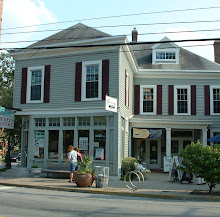Hello Friends!
I had no idea it had been 3 weeks since I sent you a Crescent Hill Counseling blogpost! Time does fly, doesn't it?
I thought perhaps that since summer is upon us and people are vacationing whether at home or elsewhere, I'd send out this great article I found about "stress-free vacations!" Hope you'll find it helpful!
See you soon! Alice
Don't over-schedule. Think back to your last vacation—did you overextend yourself or visit so many attractions that you ended up not liking some of them? Resist succumbing to the fear that you may never return and so must see everything a destination has to offer, and instead focus on those activities and attractions that truly appeal to you. Take it easy—this is your time off.
Vary your activities from day to day. Visiting large art museums back-to-back can be taxing for even the most ardent culture vulture, just as shopping for six straight hours can wear out inveterate browsers. If you're someone who simply must pack a lot into every day of your trip, try to mix and match your activities. Spend a morning at a museum, and follow with a light hike or garden tour in the afternoon. Save a second museum for a different day, when you might also take a bus or boat tour.
Reconfirm hours and admission. No matter how much you trust your guidebook, or how recently you've checked an attraction's Web page, call the day of your visit to make sure the place is open. Some museums open or close late or early at a whim, or may close unexpectedly because of a staff shortage, a local holiday you're not aware of, a change in the budget, or for renovations.
Plan for inclement weather. There's no reason that a rainy day should put a damper on your vacation. Consider the climate where you're headed, and then plan realistically for the possibility that you'll have some rain—perhaps this will be when you go shopping or to a museum? If there's even a slight chance of an afternoon shower, carry along a lightweight, collapsible umbrella. If you're traveling with children, bring along games you can play, rent a video in your hotel room, or make a list of indoor attractions that you can enjoy regardless of wet weather.
Carry a bit of change in local currency with you. You might find that little unexpected payments are required in order to gain admission to sights, like public parks, or in order to use illumination devices in churches (timed lights on certain parts of the interior or artwork).
Pack light. Bring along just one bag, fill it with only a day's worth of necessities—guidebook, maps, cell phone, bottled water, IDs, sunscreen, portable umbrella, etc.—and take turns carrying it. There's no reason for everyone in the group to haul around a separate bag.
Don't forget your cell phone or phone card. Carry your phone with you, even if you don't plan to use it. Turn it off and use it only when you want or need to, but do keep it close at hand. It can be a lifesaver when you're trying to confirm a museum's hours, directions, or admission; need to make or change a dinner reservation for later in the day; or if you become lost or disoriented. If your cell phone doesn't work where you're going, you can rent one or get a prepaid phone card to make calls home.
Write down your hotel name and address on a slip of paper. In places where you don't speak the language, jot down the name, address, and phone number of your hotel on several pieces of paper, along with the same information for any restaurants, attractions, or other sites you're planning to visit, and present these to cab or bus drivers as you travel. Be sure, if appropriate, to write this information in both the local alphabet and your own.
Find out when museums offer free admission. Many large museums offer free or "pay-as-you-wish" admission one or two days per week, often for just part of the day (the first couple of hours in the morning, or a few hours late in the evening). Thursday and Friday evenings are common for this practice, but exact days can vary greatly—you might be able to plan your museum visits to get into several places free. Keep in mind, however, that most museums are nonprofit. If you are in a financial position to make a donation, it's always appreciated.
Plan a late-night museum jaunt. Quite a few major museums extend their usual opening times by two or three hours one night a week. This can be a great time to visit a museum, perhaps combining your tour with dinner afterward at a nearby restaurant. Sometimes museums offer special evening programs, such as lectures, wine-and-cheese socials, exhibit openings, or films.
With a group? Consider a theme park. Most parks have been planned specifically to appeal to a broad range of interests, so apart from wild rides there are gentle ones that please young children, older travelers, and more sedate types. Plus, many attractions in many theme parks are completely accessible to people who use wheelchairs or who have other disabilities.
Go with theme-park discounts. Local tourism boards almost always have coupons for the big theme parks—and many people are eligible for corporate deals through their company, school, or credit-card company. If you go after 4 PM, many parks charge almost half price; if you go in the offseason, your discounts will be even better. Check around for deals before you fork over your money.


No comments:
Post a Comment